Emily specializes in SEO, content marketing, social media strategy, and PPC campaigns. She is particularly skilled at analyzing market trends and adapting strategies to stay ahead of the curve.
If you run a multi-location agency, operating several businesses across different cities and states, you most likely understand the importance of local SEO and the challenges of implementing it.
Each challenge requires tailored strategies and solutions to ensure the effectiveness of local SEO efforts across all business locations.
This is where technology can be a game-changer for your business.
Technology’s role in local SEO isn’t just important; it’s absolutely transformative.
By leveraging local SEO and innovative tools, you can uncover new opportunities to reach your target audience and drive more foot traffic to your locations.
Bright Local recently published a report that gauged the prevalence of technology in multi-location local marketing.
They talked to 200 marketing leaders from companies all throughout the USA, Canada, and the UK, and here’s what they found:
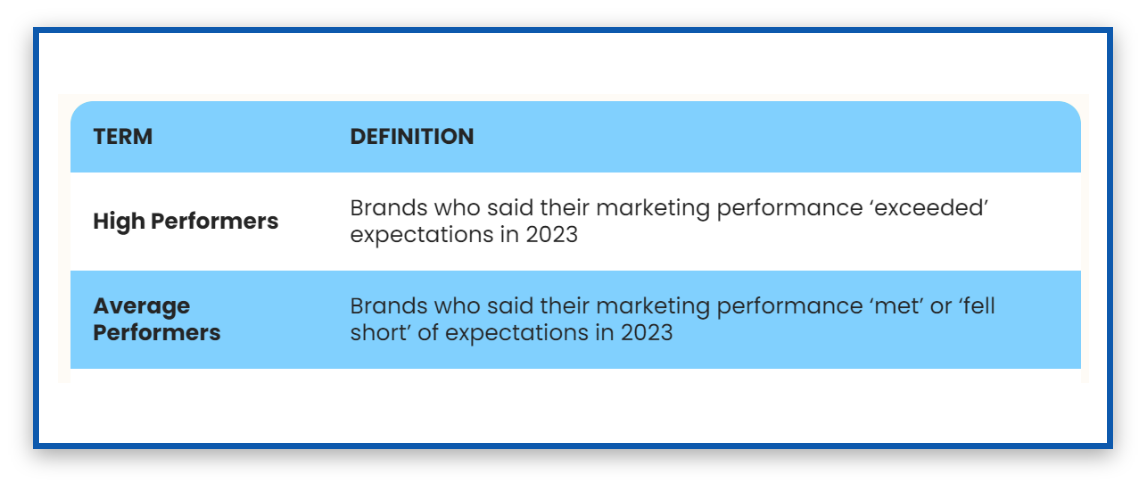
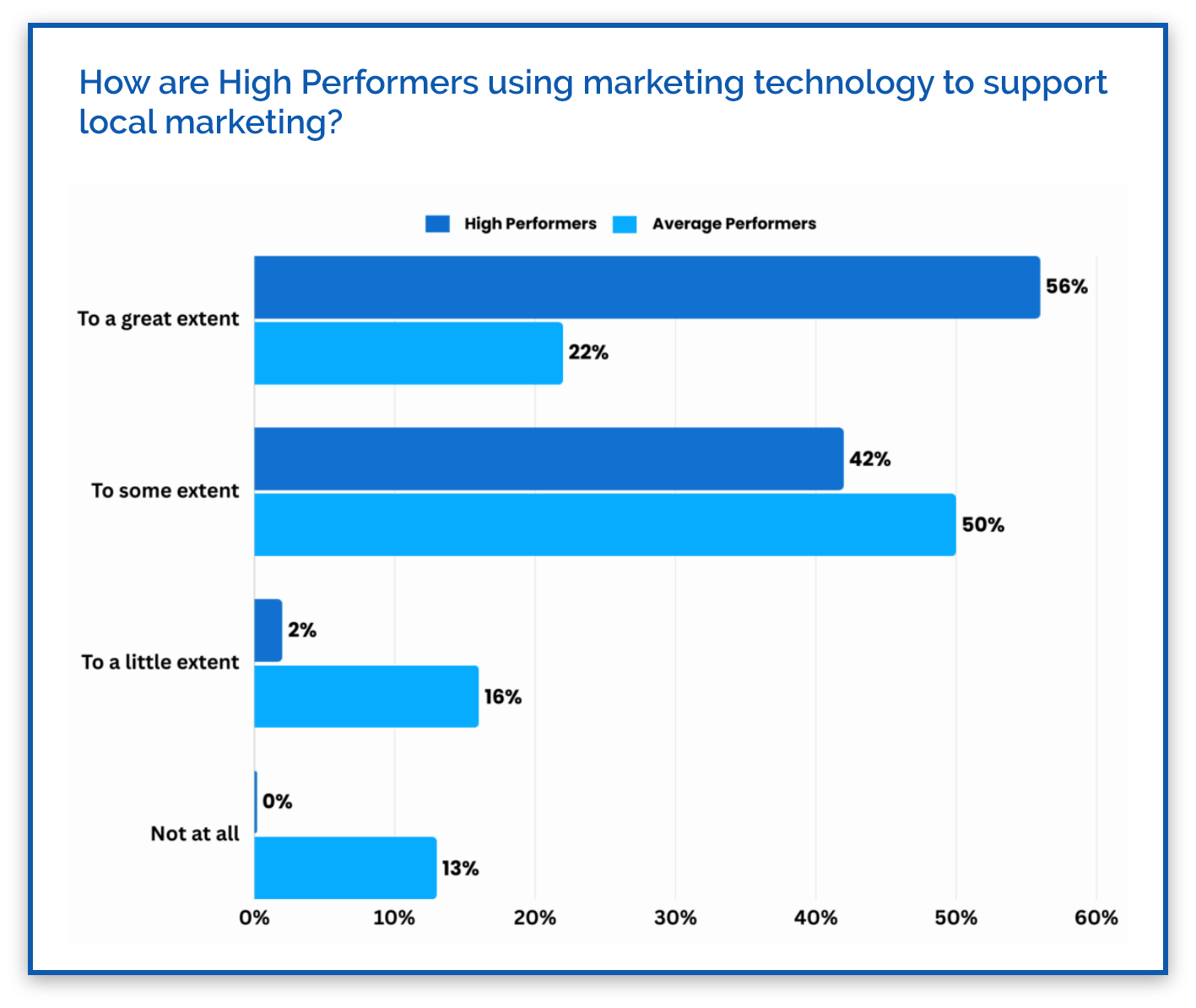
This reveals that 100% of high performers use marketing technology to support their local initiatives, with only 2% claiming to use it ‘a little’.
Naturally, marketing technology could refer to a wide range of tools.
It could be a tool for tracking local rankings and fluctuations, performance statistics of each location, or even a tool for local keyword research.
Using the right tools can help you streamline your local SEO strategies, gain insights, uncover new opportunities for growth, boost visibility, and attract more local customers.
So, to help you stand out from your competition, let’s examine some of the resources at your disposal:
GMB profiles are the cornerstone of any local SEO strategy.
This tool allows you to manage how your business appears on Google Search and Maps, offering prominent visibility to your business for location-based queries.
This means when someone searches for a service you provide in your area, your GMB listing can show up, making it easier for local customers to find you.
This free tool from Google allows you to create a profile for each branch, including essential information such as address, phone number, business hours, services offered, and website link.
In addition to basic details, you can also add photos, videos, posts, Q&A, and customer reviews to your Google My Business listings.
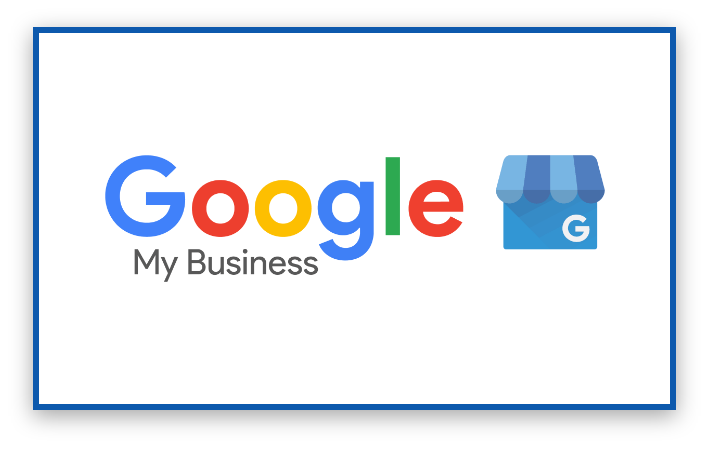
GMB also offers insights and analytics that can help you track the performance of your listings.
Leveraging these data-driven insights, we optimize each location’s GMB listing with accurate and consistent NAP details, localized content, and keywords.
We manage reviews and Q&A, post updates and offers, and use insights to improve local search visibility.
To further attract local customers, we verify and optimize each location’s listing for local searches, focusing on what makes each one special.
Take a look at how we utilized this tool in our SEO strategy for an oral surgeon client.
It was part of a larger strategy to improve Google’s understanding and indexing of the client’s brand, services, and geographical relevance, which led to an increase in leads and revenue.
For more details, please refer to the full case study here.
Think of Moz Local as your mission control for managing listings.
With just a few clicks, you can verify your business information is consistent across the board—from Google My Business to Facebook and beyond.
It’s like having a single dashboard that keeps every location in sync, saving you the headache of manually updating each site.
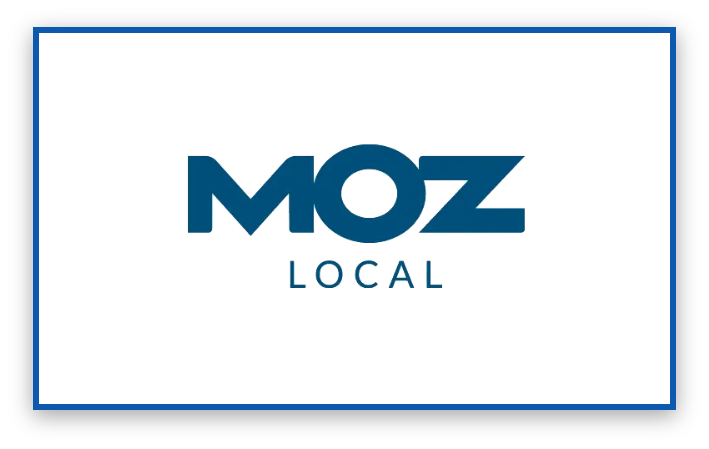
Here’s a rundown of all the other features provided by Moz Local:
Moz Local streamlines the process of managing your company’s online presence by verifying all of your details, increasing your visibility in local search engines, and accurately disseminating your location information across the web.
It also monitors reviews and offers analytics to understand local search performance, making it easier to maintain a strong local SEO presence for each business location.
Yext checks hundreds of online resources, including directories and maps, to make sure your company’s NAP is correct.
In the same way that Moz Local makes it easy to manage your business’s listings from a single dashboard, Yext makes it simple to update your information quickly and keep tabs on reviews.
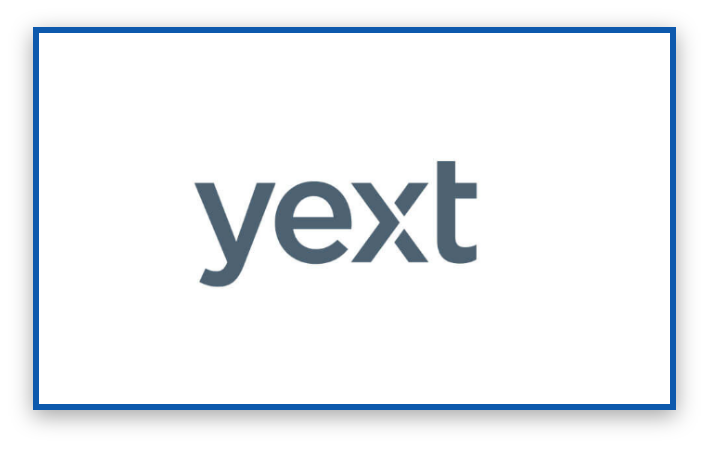
But what sets Yext apart from Moz Local are its distinct features.
Yext coordinates and maintains your profile across several platforms and directories.
It helps ensure the accuracy of location data, manage reviews, and update information in real-time, which is crucial for maintaining a consistent and correct online footprint.
This centralized control improves local search rankings and visibility, making it easier for customers to find accurate information about each business location.
BrightLocal is your local SEO detective, providing detailed insights into how each of your locations performs online.
From tracking your search rankings to managing reviews and auditing your listings for accuracy, BrightLocal gives you the insights needed to improve your local visibility.
Compared to other tools like Moz Local, Yext, and GMB, BrightLocal stands out because of its suite of tools for managing reviews, in-depth local SEO audits, and competitor analysis.
These audits cover citations, on-site SEO factors, GMB optimization, and online reviews, providing practical insights that go beyond the general listing management focus of GMB, Yext, and Moz Local.
One of BrightLocal’s best features is its ability to thoroughly analyze competitors.
This allows companies to see how they stack up against the competition in terms of local SEO and what they can do to improve.
While Yext and Moz Local offer review management features, BrightLocal goes a step further by providing tools not only for managing reviews but also for actively generating new reviews.
This includes sending review requests to customers and monitoring review performance across various platforms, which is essential for improving online reputation and local SEO rankings.
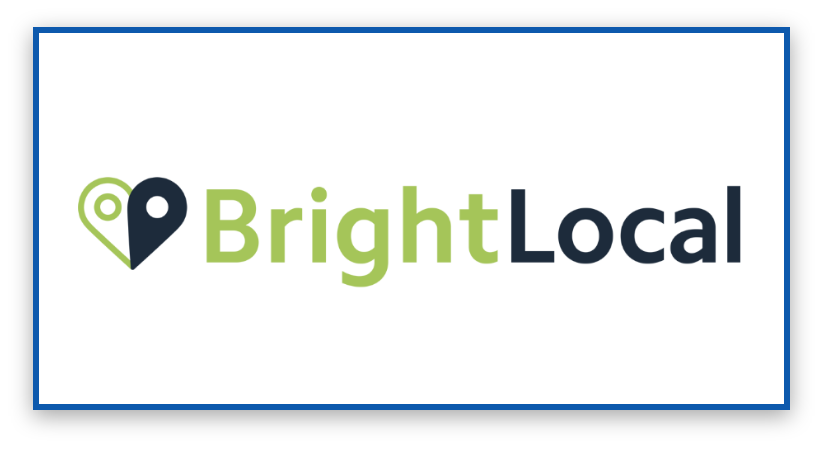
In-depth rank tracking for local search queries is provided by BrightLocal, enabling businesses to monitor their performance in SERPs for important keywords.
This allows us to track performance based on individual locations, which provides us with detailed information about how each site is doing.
Customer reviews play a major role in local SEO.
Businesses with more reviews and better ratings tend to rank higher in search results.
Search engines see reviews and ratings as indicators of a company’s reliability and quality.
Proper review management can ultimately enhance your search visibility.
As such, ReviewTrackers is an essential tool for multi-location brands aiming to boost their local SEO.
The reviews on ReviewTrackers come from more than a hundred different review sites, all in one convenient dashboard.
Because everything is in one place, businesses can easily track consumer input from any of their locations and reply to it without having to switch between different platforms.
Businesses can respond to both favorable and negative reviews with the help of this technology.
This interaction not only helps in customer retention but also encourages more positive reviews.
![]()
Positive reviews can improve your overall online reputation, attracting more clicks and conversions.
ReviewTrackers can also examine review data to reveal trends, customer sentiment, and improvement opportunities.
All of wich could be used to improve our SEO strategy.
Synup allows us to streamline the management of your listings across hundreds of directories and review sites from a single dashboard.
It helps us ensure accurate and consistent business information, manage reviews, and publish location-specific content, which are critical components for enhancing local SEO.
Citations, which are mentions of your business across the web, play a crucial role in local SEO.
Synup automates the process of building new citations and cleaning up inaccurate ones.
This not only improves your search rankings but also makes your business more discoverable to local customers.
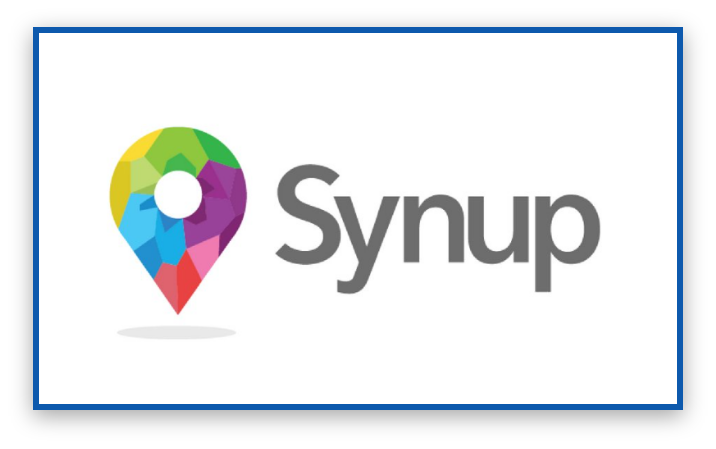
What sets Synup apart from all the other tools mentioned above is their unique features:
1.Widget Functionality for Websites.
Synup provides unique widget functionalities that can be integrated into business websites.
These widgets can display updated business information, reviews, and other relevant content directly on your site, enhancing SEO and user experience.
This feature isn’t as prominently offered by other tools like Moz Local or ReviewTrackers, which focus more on backend listing and review management.
2. Voice Search Optimization.
Recognizing the growing importance of voice search, Synup places a strong emphasis on optimizing listings for voice search queries.
This makes sure that businesses are easily discoverable through Siri, Google Assistant, Alexa, and other voice-activated systems.
3. Automated Review Management and Generation.
Synup goes above and beyond ReviewTrackers by concentrating on review generation in addition to review management.
It not only helps businesses monitor and respond to reviews across platforms but also actively encourages happy customers to leave positive reviews, boosting the brand’s online reputation and local SEO.
4. Competitive Analysis.
Synup offers detailed competitive analysis, allowing businesses to compare their local SEO performance against that of their competitors.
This includes insights into competitor rankings, reviews, and citation profiles.
While Yext and Moz Local provide some level of competitive insights, Synup’s approach is more tailored towards actionable intelligence for multi-location brands.
While Ahrefs is not exclusively designed for local SEO, it offers a wealth of features that can significantly enhance your local marketing efforts.
We use Ahrefs to spy on your local competitors’ SEO strategies.
We use it to see where they are getting their backlinks, what keywords they are ranking for, and how their content performs.
This insight enables us to identify successful local SEO tactics and opportunities.

The most useful features of Ahrefs for a local SEO are its Site Explorer, Keywords Explorer, and Site Audit features.
Site Explorer analyzes competitors’ backlinks and rankings.
The Keywords Explorer finds detailed keyword data, including search volume, keyword difficulty, and click metrics.
Ahrefs’ Site Audit feature can crawl and analyze the SEO health of your website, identifying issues that might be affecting your local search visibility.
Together, these tools help tailor local SEO strategies for each location.
Another feature of Ahrefs that’s worth mentioning is its Rank Tracker.
This tool allows us to track your website’s search engine rankings for specific keywords across different locations, which is particularly useful for multi-location businesses aiming to monitor and improve their local SEO performance.
While Ahrefs does not directly manage local citations, it can help identify potential citation opportunities by analyzing where competitors are listed.
We can then pursue listings in similar directories to strengthen our local SEO efforts.
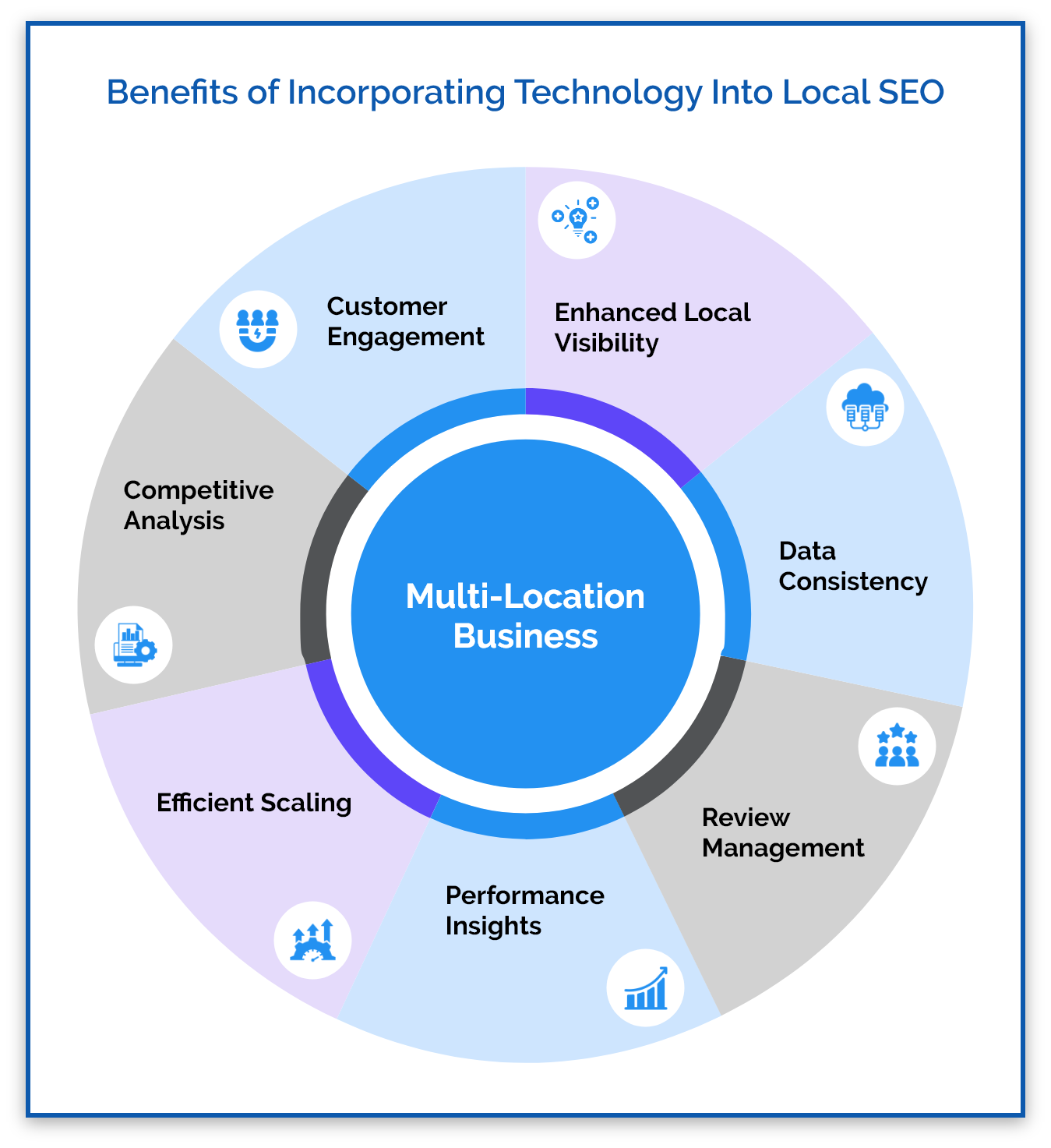
By strategically applying and combining these platforms mentioned above, we effectively execute our SEO strategies to improve your online presence and search rankings.
While all these platforms provide crucial support for our local SEO efforts, you still need a personalized strategy that works best for you.
If you’re looking for assistance in developing and implementing a local SEO strategy that fits your unique needs, take a look at our service, “The Closer.”
Discover how “The Closer” can elevate your lead conversion process, transforming prospects into clients with ease and efficiency.
Schedule a call with us today to find out what a partnership with us could do for your business.